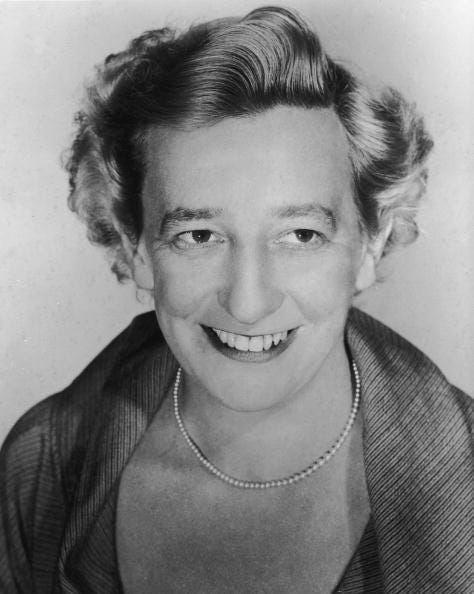“Patty’s Charcoal Drive-In” by Barbara Crooker from Selected Poems. © Future Cycle Press, 2015.
ORIGINAL TEXT AND AUDIO - 2017
It’s the birthday of novelist, poet, and short-story writer Josephine Winslow Johnson, born in Kirkwood, Missouri (1910). In 1932, Johnson left college to help out on the family farm. She also set up a small table in the attic at which she began writing short stories. After several were printed in magazines, an editor called her and asked if she would consider writing a novel. She sat down at her attic table and began to write what became Now in November, a book about an isolated farm family driven into poverty by the Depression. Johnson was at home at the farm one day in 1935 when a reporter called to tell her that she had won the Pulitzer Prize. She was 24 years old.
Johnson went on to write 10 books of poetry, fiction, and essays, including Jordanstown (1937), The Dark Traveler (1963), and Circle of Seasons (1974). She was a passionate environmentalist, who once wrote, “A vast throng of people are working night and day, destroying all they still call their native land.” She received great critical praise for her 1969 memoir, The Inland Island, a month-by-month record of the ecological changes on her 37-acre farm in Ohio. She died of pneumonia in 1990 at the age of 79.
It’s the birthday of American playwright and memoirist Lillian Hellman, born in New Orleans (1905). She spent her childhood bouncing between Upper West End Avenue in New York City and a series of genteel boarding houses run by relatives in New Orleans. She was a smart loner who took refuge in books. She once ran away at 14 and pawned a birthday ring her uncle gave her to buy books. After she was found out, instead of scolding her, he told her, “So, you’ve got spirit, after all. Most of the rest of them are made of sugar water.” Hellman later used that line in one her most famous plays, The Little Foxes (1939). Her friend Dorothy Parker came up with the title for that play, which comes from Chapter 2, Verse 15 of The Song of Solomon.
Hellman was opinionated, brash, funny, and sometimes rash, as when she got into a very public spat with novelist Mary McCarthy, who went on the Dick Cavett show in 1979 and said every word Hellman ever wrote, “including ‘and’ and ‘the,’ was a ‘lie.’” Hellman sued McCarthy, the Educational Television Corporation, and Dick Cavett, for damages of $1.75 million for “mental pain and anguish.” It wasn’t the first time Hellman, who wrote four memoirs, had been challenged about her writing. She once said: “What I have written is the truth as I saw it, but the truth as I saw it, of course, doesn’t have much to do with the truth. It’s as if I have fitted parts of a picture puzzle and then a child overturned it and threw out some pieces.”
Hellman got her start in the theater working as a play reader for a producer. She was in a romantic relationship with novelist and screenwriter Dashiell Hammett, a relationship they’d cultivate for 30 tempestuous years, and he told her to try her hand a playwriting. She did, thinking what she was working on was just a lark, but when the producer read the first act, he said, “Swell.” After reading the second act he said, “I hope it keeps up.” After reading the third act he said, “I’ll produce it,” and he did. That play was called The Children’s Hour, and took on the taboo subject of rumors and lesbianism in a girls’ boarding school. It was a hit and ran for 691 performances, making Lillian Hellman a famous writer.
It’s the birthday of Jacques Offenbach, born in Cologne, Germany (1819). He composed many comic operas, and most critics consider his masterpiece to be Orpheus in the Underworld (1858). The opera makes fun of Greek mythology, and at one point the gods and goddesses perform a cancan. Audiences were outraged at first, but the outrage led to the opera’s popular success. We also know one of Offenbach’s tunes because it was taken for the American Marine Corps Hymn, “From the Halls of Montezuma.”
Offenbach struggled with financial difficulties in his later life. He eventually became a recluse, working on a serious opera that he believed would be his masterpiece. He didn’t live to see it performed, but when it premiered, The Tales of Hoffmann (1881) became an immediate success.





"She rushes through the wild heather"
“The dark pours down, sticky as Coke”